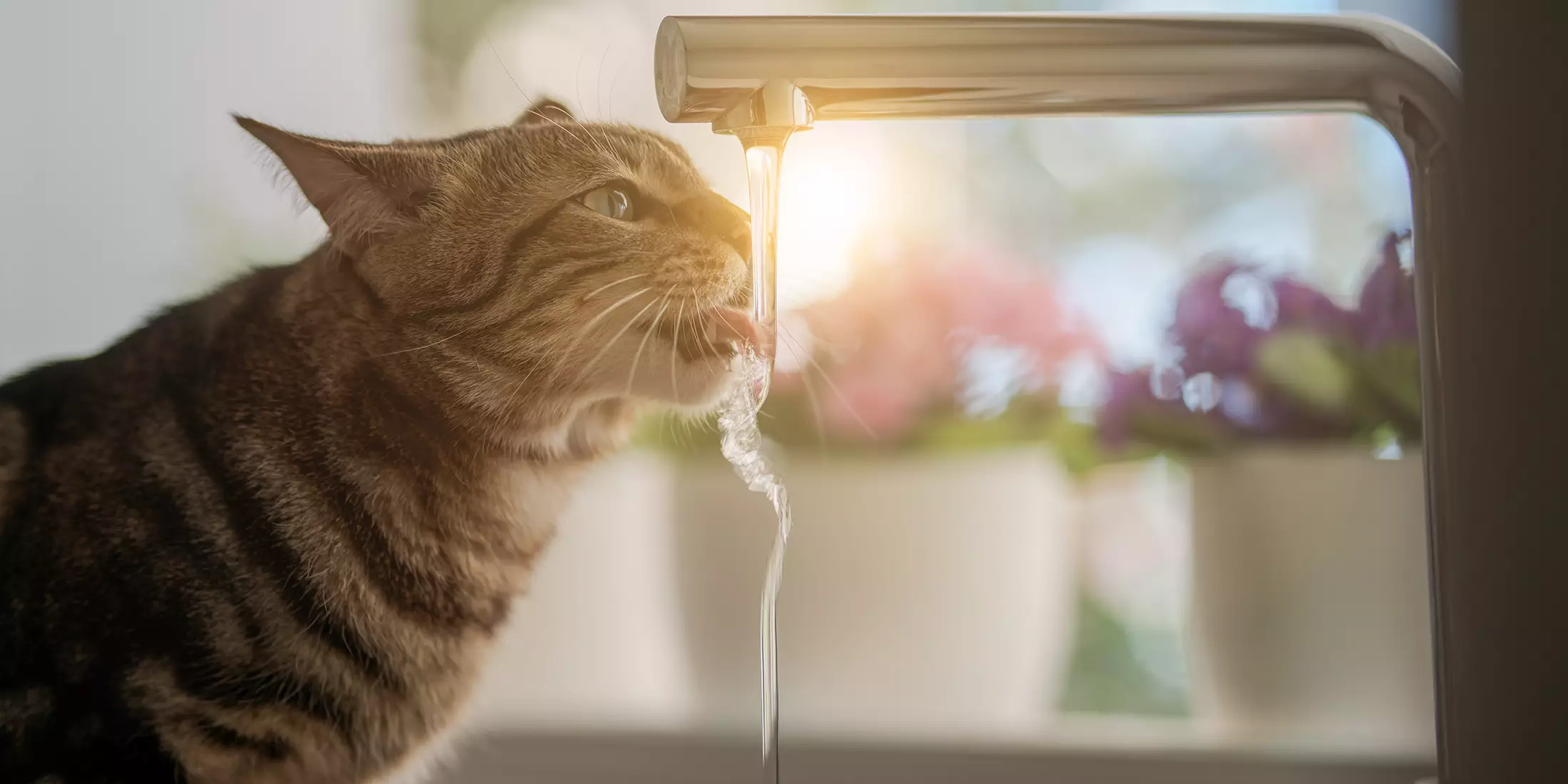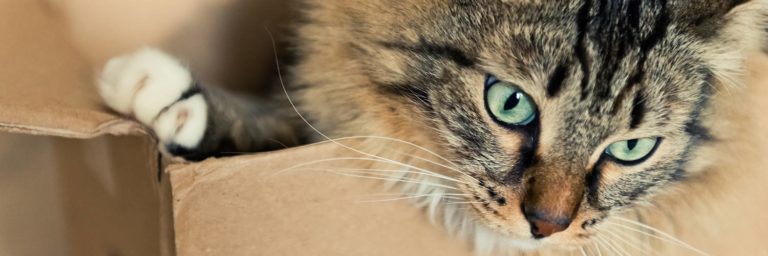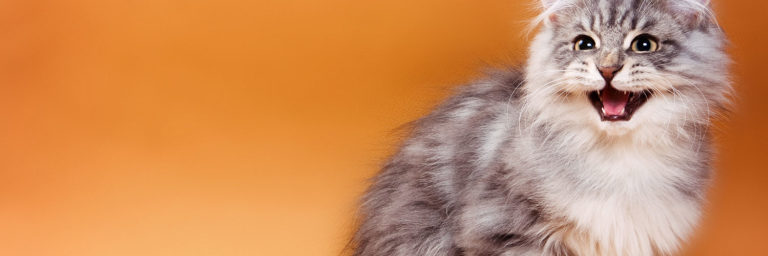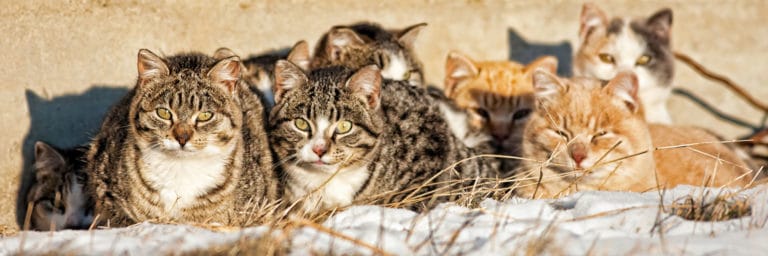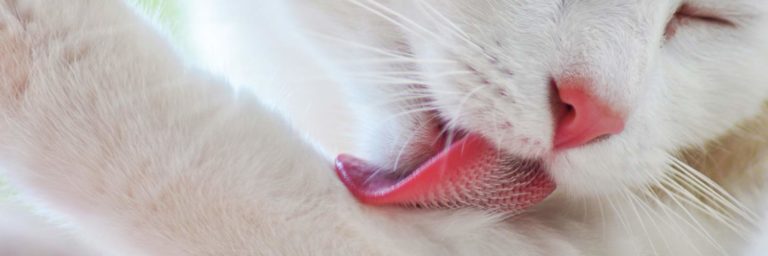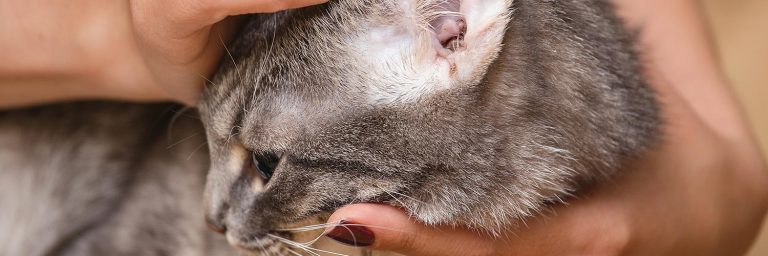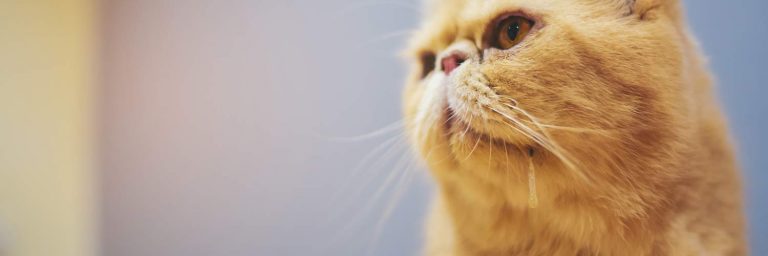Why Is Your Cat Drinking More Water Than Usual?
Contents of Article
Even when summers are over, do you still find your kitty emptying their water bowl too frequently? Is your cat drinking more water than his usual intake? If so, you must be pondering: why is my cat drinking so much? Well, the reason could be anything, from behavioral problem to polyuria, diabetes, or any other metabolic disorder.
Let’s dig deeper into this problem to see why a cat’s water requirement increases suddenly.
How Much is Too Much?
Typically, cats do not drink too much water. Though they are not prolific drinkers, certain conditions could result in a cat drinking more water.
So how much water should a cat drink?
The normal intake of water for a cat should be on an average 60mls/kg per day for the optimal functioning of their organs. However, under normal circumstances, a cat’s water intake is based on its weight and diet. A kitty on wet food will drink less water than a pussy on a dry diet. Wet or canned food is 80% water compared to 10% in dry food. They drink 2 millimeters of water per gram of dry food.
The National Academies’ Research Council states that normally it takes cats 24 hours to drink enough water to substitute 6 percent of their weight. However, if you see a cat drinking more water than its normal practice, it may be a sign of an impending problem.
If your kitty is emptying her water can too frequently, this could be a reason to take her to the vet. Sickness fuels the drive to increase the intake of more fluids than the body requires under normal circumstances.
- You may see your cat drinking more water than the required amount of water merely to attract more attention from their human parents.
- Excessive drinking may point toward an underlying metabolic disorder.Hyperthyroidism, diabetes, and kidney disease are the common problems associated with increased drinking in cats.
- Cat’s water intake may increase as a response to environmental conditions or diet.
- Some cats may start to drink more water due to any change in routine or location.
If your kitty is showing signs of polydipsia, consult a veterinarian immediately.
Probable Diagnosis: Why is My Cat Drinking More Water?
Excessive thirst could be due to an underlying health problem involving kidneys and urinary tract. If your kitty shows signs of excessive thirst accompanied by sudden weight loss and urination, she could be suffering from kidney disease or diabetes mellitus. Renal failure also causes excessive thirst, besides many other symptoms.
Changes in Drinking Behavior
A dehydrated kitty with dilute urine needs immediate medical attention. Dehydration results in concentrated urine, as your tabby’s body tries to balance its hydration.
Is your kitty:
- Making repeated trips to her water bowl
- Experiencing changes in appetite
- Shows signs of frequent urination
- Sleeping more than normal
- Showing signs of change in general demeanor
- Feeling low, vomiting and/ or diarrhea
A physical examination, blood test and/orurinalysis are often done to understand increase in your cat’s water intake. A general blood profile is recommended to determine changes in glucose levels, kidney and liver enzymes. More tests may be done to assess thyroid hormone levels and health of red and white blood cells.
A kitty’s urine sample will give detailed information on the presence of blood, protein,glucose concentration in urine.
Diabetes mellitus
The condition is characterized by high blood sugarlevels. Since theglucose spills out into the urinecarrying large amount of water, the kitty feels dehydrated and needs to drink more water.
The condition is caused when the body cannot use or produce insulin hormone. As a result, the body cannot use or regular blood sugar. Some of the factors that contribute to diabetes in cats include obesity, genetics, and lack of physical activity, among others. A diabetic kitty shows signs of
- drinking more water than usual
- urinating too often
- sudden weight loss
- increased appetite
- abnormal hair coat
Hyperthyroidism (overactive thyroid)
When the kitty’s thyroid glandbecomes overactive and produces excessive thyroid hormones, this condition is known as hyperthyroidism in cats.
Thyroid hormones are important for basic metabolic functions, such as metabolism of nutrients and heat regulation of heat. When the gland becomes overactive resulting in excess production of thyroid hormones, it increases metabolism,appetite, and thirst, which could lead to restlessness, increased urination, and weight loss. In such a condition, the heart rate and blood pressure may increase, causing the heart to work faster.
Chronic Kidney Disease/kidney failure
Kidneys are responsible for the elimination of waste products, electrolyte balancing, maintaining water balance, and producing some hormones. Any problem with kidneys results in the urine becoming more diluted. As a result, cats start to urinate often and the kidneys are not able to eliminate waste completely. To compensate for the water loss, cats drink more water to maintain hydration.
Other symptoms of kidney disease include reduced appetite, nausea, weight loss, vomiting, or diarrhea. Kidney failure may be caused by blocked arteries, urinary tract blockage, infection, or blood clot.
Glomerulonephritis is another kidney disease that could lead to kidney failure in cats. In this condition, kidneys cannot filter blood properly. This may result in the loss of many essential proteins. The condition may be fatal for the kitty. More frequent urination is the most common symptom of glomerulonephritis.
Why Is My Cat Drinking So Much?
Try to monitor the regular volume of water your feline drinks. If your kitty suddenly starts to show obsession for water and urinates too often, you need to take her to the vet to investigate why your cat is abnormally thirsty.

